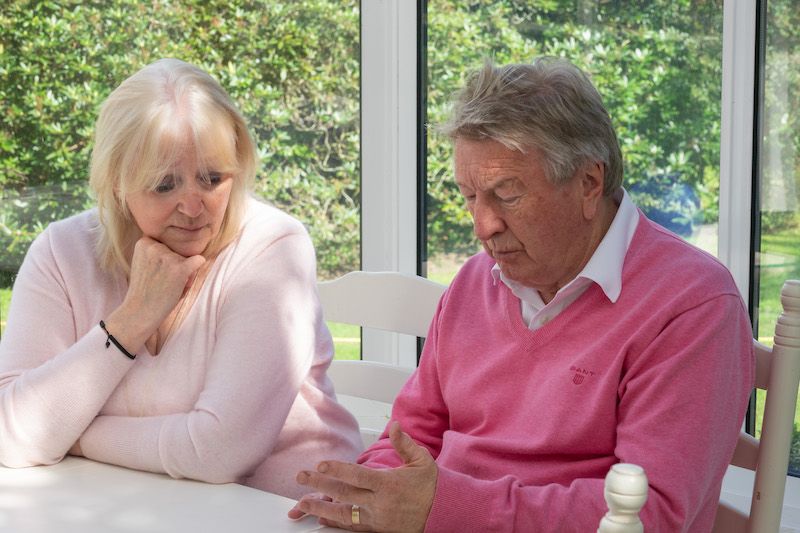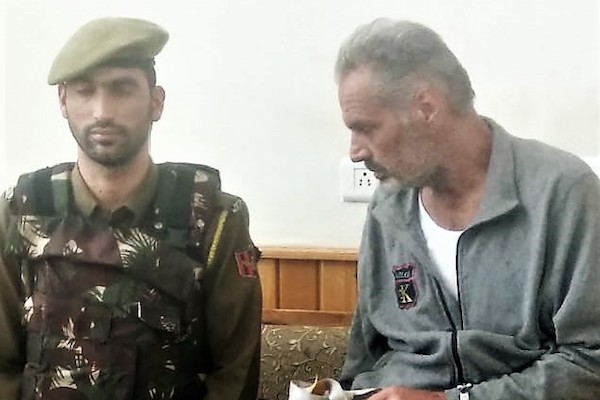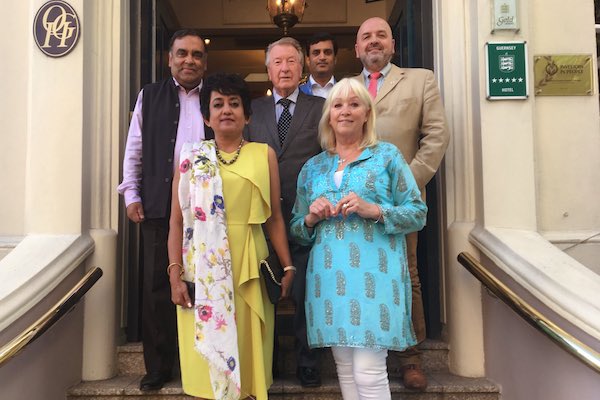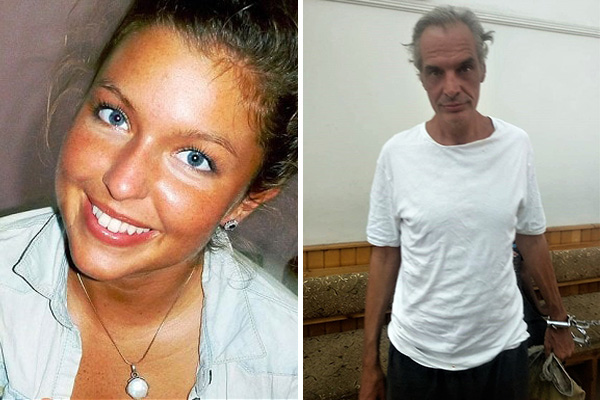

Ahead of the sixth anniversary of their daughter’s Sarah’s death on a houseboat in Kashmir, India, Kate and Vic Groves sat down with Bailiwick Express to discuss the stalled trial, meeting the man accused of murdering their daughter and their long pursuit for justice.
More than 2,000 days have passed since Kate and Vic Groves received the worst phone call that a mother and father can receive. Yet the memory of that abrupt, early morning phone call from Kashmir, India are fresh in the mind, as the sixth anniversary of Sarah’s death passed on Saturday.

Pictured: Sarah Groves.
“I hoped it was a hoax, a horrible hoax”
“It is every time that the phone rings frankly,” said Mr Groves. “Especially in the early hours of the morning…”
“You know don’t you, it’s not going to be good news,” Mrs Groves continues. “It was just this gruff policeman from Kashmir. ‘Mr Groves, Mr Vic Groves, your daughter Sarah she’s dead, she was murdered, but we have the man.’ I thought I was going to lose my mind.”
Six years on from Sarah’s death, they appear no closer to getting justice for their daughter’s murder.
The incompetence of the Indian authorities handling the trial, the non-appearance of witnesses, the debilitating health of the accused, Richard de Wit, and a slew of environmental and political incidents outside of their control have made their 24-year-old daughter’s death on a Kashmiri houseboat even more difficult to process.
“You name something that can disrupt a trial, and we have had it – there were serious floods in 2014, we have problems every time there are elections, problems with his [de Wit’s] mental health, there was an earthquake earlier this year, and they were bombing on the border three weeks ago,” said Mr Groves.

Pictured: Richard de Wit.
“People say it cannot be worse, but I cannot think of a strand of it that could be worse,” said Mrs Groves. “I feel so alone in it now. I feel we are totally alone.”
“But we have had a very good connection through Jonathan Le Tocq here, who has been amazing,” added Mr Groves. “We got to meet with, and have dinner with, the Indian High Commissioner, the most senior person representing India within the United Kingdom.”
However, what could have been a landmark moment in the trial became the latest in a long line of disappointments.
“The meeting went very well and there was all this hope,” said Mr Groves. “Then three weeks later the High Commissioner retired.”
“The support we get is uplifting”
While many of their contacts and connections, “…are beginning to lessen,” Mrs Groves said people locally have helped to pull them through some dark times.
“The support we have had from the Guernsey public is extraordinary,” she said. “People will come up to us, express their sympathy and there is nowhere else in the world where I could imagine having that kind of support.”
Their relationship with the Indian authorities is very different, says Mr Groves.
“The support we get is very uplifting, but the truth of it is that we don’t what the end result is going to be and when,” he said. “The [Indian] system is so bad that I would not feel sure of the verdict one way or the other.
“As thing stand, we are at an impasse. By the time the next hearing comes around on 15April it will have been five-and-a-half months since there was any progress in the trial.
“In the early days of the trial in 2013, and for a time in 2015, there was acceptable progress but that has been few and far between and since then there has been nothing that gives us confidence – It think it has been a farce.”

Pictured: Last year Mr and Mrs Groves, and Deputy Jonathan Le Tocq, met the Indian Commissioner in an effort to speed up the trial.
The Groves have gone to great lengths to try to inject some urgency into the process, something which has been conspicuously absent in the trial, with the current prosecutor “seeming incapable” of getting witnesses to show up despite being admonished several times by the judge.
When witnesses have reached the courtroom, progress has often been drawn out and in one instance it took 280 days for a witness to be fully heard.
“The trial is falling apart and I don’t know how we can possibly retrieve some informants,” said Mrs Groves, with her husband adding: “Key witnesses have now been misplaced and their whereabouts lost. That is one of the inevitable by-products of it being six years.”
Fighting for justice
The most recent of those six years proved to be perhaps the most frustrating yet for the Groves.
Their efforts to generate some momentum led to a petition with around 20,000 signatures calling for an intervention by the British Government, meetings with the UK MP Mark Field, who is the Minister of State for Asia and the Pacific at the Foreign and Commonwealth Office, and meetings between the British High Commission and Kashmiri officials.
A letter has been written to the judge, and every senior legal and political stakeholder in the region and in Delhi, requesting specific improvements and the recall of key witnesses for second cross-examination.
“We have written to every senior politician in the area and we haven’t even had the courtesy of a reply,” said Mrs Groves.
“I think it should go to a High Court - the trial is in a District Court which is like our Magistrate’s Court. They say they adopt the British system, but it is unrecognizable to ours.”

Pictured: Sarah Groves and Richard de Wit, who denies murdering her, six years ago.
The recent deadlock in proceedings has been mainly caused by the failure of witnesses to attend court, and civil unrest.
In instances like this, under-trial prisoners cannot be transported to court because police resources are needed elsewhere.
“When the authorities hear anything about that, there is an immediate blackout on the internet and that makes communication with them very difficult,” said Mrs Groves.
“That is something we can’t do anything about,” said Mr Groves. “But then there’s the non-appearance of witnesses, which we feel we can do something about. That wouldn’t be tolerated in most jurisdictions of the world. It is inexcusable and we have to somehow make a statement of some kind to get them to address that.”
There are also outstanding concerns over corruption, and the deteriorating health of Mr de Wit.
“The corruption, it would blow your minds, it really would,” said Mrs Groves. “We were entitled to receive the transcripts following each court hearing, and the prosecution at the time was proving difficult to tie down and then he asked his brother to contact us – and it’s in writing – that they would be happy to release these papers if we could send a pair of Adidas trainers, size eight, and a particular style. What do you do? It is our entitlement, but that was just one example of how overt the corruption is.”
Meeting the man accused of murdering their daughter
The situation with Mr de Wit is more complicated still, especially given their interactions with the Dutch national, who denies the charges made against him. They were allowed by the judge to speak with de Wit after the Dutch national fired his defence lawyer and the Groves stepped in to help appoint a new one, as they did not believe de Wit could do so from jail, and wanted to avoid further delays.
“It doesn’t help that we have spent time with him,” said Mr Groves
“He just seems so mild-mannered,” said Mrs Groves. “He’s never had an episode in six years in prison.”
About the accused’s personal situation, Mr Groves said: “He and his brother are estranged from their parents, his wife is severely incapacitated, and they have two teenage daughters. He didn’t have a family visit for over three years.
“When I was going out there,” Mrs Groves recalled, “I phoned his mother and asked if she would like me to take some of Richard’s favourite chocolates or biscuits or just something from home and she just said ‘No thank you, nothing.’
“They were working from a presumption of guilt,” said Mr Groves. “But we did have some very delicate discussions with the Dutch human rights lawyer and he said that he [de Wit] had never admitted it, he has always denied it.”
“You can talk to him perfectly normally for 10 minutes, then he is away with the birds and you won’t get any sense out of him. If you try to bring it back to the events on the night, he will do anything to do avoid it.
“I asked him if he did it and asked him if he would look me in the eye and plead not guilty if the trial started again. He looked me in the eye and shook my hand and told me he didn’t do it, and did so on two visits. By all accounts, people in his position with his mental condition can say or do anything to sound convincing, but it certainly makes it difficult.”
As difficult as the situation is for them, and no matter what obstacles they face, they are determined not to give up. The overriding emotions are that of “heartbreak and futility,” but there are also “bright spots” through the Sarah Groves Foundation, which was set up to help fulfil Sarah's own ambition in life - to enhance the lives of young people.
The charity raised £95,000 last year and supported projects such as the renovation of the children’s facility at the Guille Alles Library. This work, which helps Sarah’s name and giving nature to live on, continues to fortify her mother against the dark periods.
“It is such a senseless tragedy and I miss her so much. It is very difficult not to despair, but I can’t despair - I have to do it for Sarah, for as long as I have breath in my body.”
Comments
Comments on this story express the views of the commentator only, not Bailiwick Publishing. We are unable to guarantee the accuracy of any of those comments.